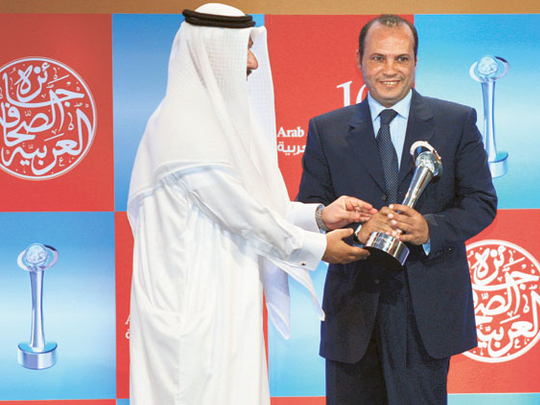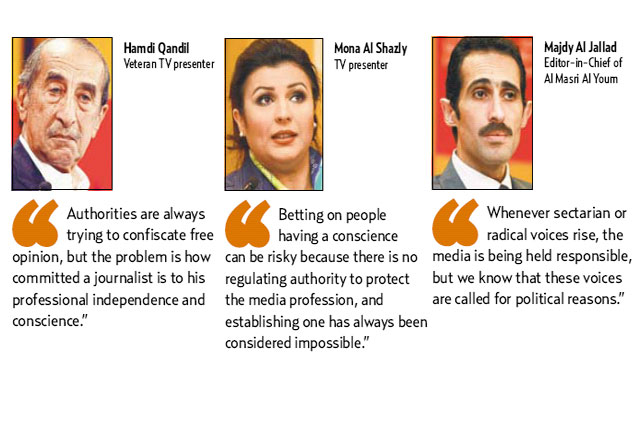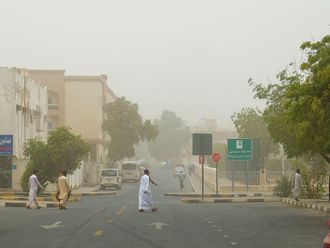
Dubai: The changing scene of the Egyptian media following the January 15 revolution was discussed by prominent Egyptian media personalities during the last session of the Arab Media Forum.
Veteran TV presenter Hamdi Qandil said his main concern was the journalists who were used to receiving orders from the authorities, and not the authority itself, which oppresses the media.
The authority naturally imposes many orders and regulations, but the problem lies with some of the journalists, who were raised with the culture of being obedient, he said. "Some journalists can't find their way around if they don't receive orders, and are always seeking the flow to go with it," the TV personality said.
He said authorities are always trying to suppress free opinion, but the problem is how committed a journalist is to his professional independence and conscience.
Wael Qandil, columnist and managing editor of Shurooq newspaper, said although the situation has changed, some journalists maintain their old attitude. "Hypocrisy towards the president before the revolution turned into hypocrisy towards the revolution, and those who praised the former leadership are now praising the current one," he said.
Professional development
TV presenter Mona Al Shazly agreed, adding that the next challenge is professional development.
"Many have a conscience, but betting on that can be risky because there is no regulating authority to protect the profession, and establishing one has always been considered impossible," she said.
She asked whether the code of honour, which was never implemented, applicable now? "The real challenge is to organise the media and establish a respectable media syndication," she said.
On the changing role of the Egyptian army, Majdy Al Jallad, Editor-in-Chief of Al Masri Al Youm Egyptian daily, said while no one comments on the military role of the army, passing an opinion about its political role is a must.
"Whenever sectarian or radical voices rise, the media is being held responsible, but we know that these voices are called for political reasons," he added.












